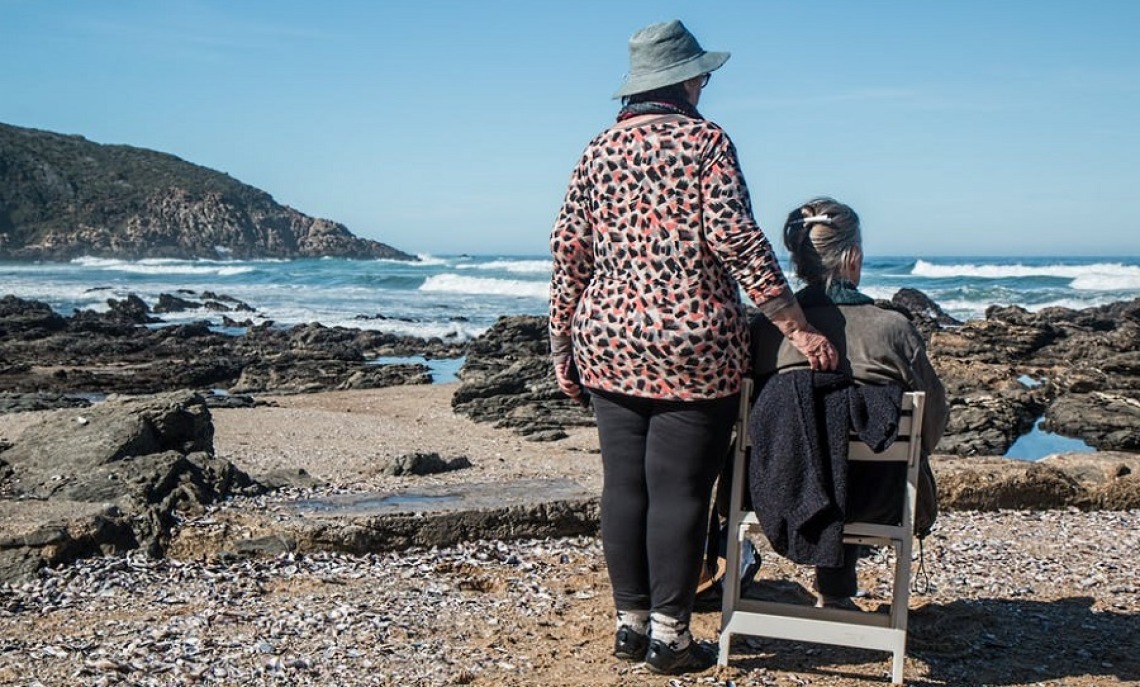Mind Over Cancer: Reducing Stress with `Compassion Meditation’
A cancer survivor responds to stress in various detrimental ways, including psychological problems, such as anxiety and depression, as well as physical issues, such as high blood pressure, increased heart rate and elevated blood sugar levels.

A cancer survivor responds to stress in various detrimental ways, including psychological problems, such as anxiety and depression, as well as physical issues, such as high blood pressure, increased heart rate and elevated blood sugar levels. All those factors contribute to a lower quality of life for people already dealing with a debilitating health issue. But the mind may have a key to helping ease those woes.
“Compassion meditation” is a centuries-old practice meant to improve emotional and physical wellbeing, but thanks to recent scientific inquiry into integrative therapies it may find its way into contemporary cancer survivorship healing programs.
University of Arizona College of Nursing Assistant Professor Thaddeus Pace, PhD, intends to apply a specific compassion meditation technique called CBCT® (Cognitively-Based Compassion Training) to see if it eases psychological and biological stress-related responses in home caregivers as well as patients coping with cancer.

Dubbed compassion meditation, in previous studies, Dr. Pace’s chosen therapy already has proven effective in dampening the body’s response to stress in healthy young adults. “We’ve taken initial work on how compassion meditation may be good for modifying stress activation and already have examined indicators of its stress-reduction effect in foster-care children with trauma histories,” said Dr. Pace, who theorizes that the therapy also may prove useful in the cancer-survivorship arena. “The biological underpinnings of the quality-of-life impairments that happen in cancer survivors likely involve similar stress components.”
Created by Dr. Pace’s colleague at Emory University, Geshe Lobsang Tenzin Negi, PhD, CBCT® is derived from the ancient Tibetan Buddhist tradition of Lojong, a mind-training discipline that emphasizes mental calmness in difficult situations. “We have a sense that this compassion meditation program may have some beneficial impact on systemic inflammation,” said Dr. Pace. “Inflammation is highly implicated in the quality-of-life impairments that people experience after primary cancer treatments. Poorer quality of life also affects those surrounding cancer survivors, which is why we’re extending this work to involve not just cancer survivors but also their close, supportive caregivers as well.”

Thanks to research led by College of Nursing Professor Terry Badger, PhD, RN, PMHCNS-BC, FAAN, and College of Social and Behavioral Sciences Professor Chris Segrin, PhD, it is evident that a complex social bonding occurs between cancer survivors and their home caregivers (family or close others). Studies involving prostate and breast cancer survivors revealed when the patient’s mood was down, their caregiver’s mood tended to be down, and vice versa. Based on this interplay, Dr. Pace plans to offer the multi-week compassion meditation program to both parties, promoting more tranquil moods in tough social situations, and also sustaining a calmer overall outlook. “If we boost one or both, they both really rise together dramatically,” said Dr. Pace.
He hopes that a new study underway in his laboratory will build solid scientific evidence to back up this integrative wellness strategy for breast cancer survivors and their close family members and friends. Participants will learn how to adapt their mind-body state by attending instructor-guided meditation sessions with expectations to also practice at home. Observed changes in depression, anxiety, stress and social interactions will provide insights into the body’s mental and physical responses to the therapy as well as how to improve them.
“If we showed broad effectiveness of this program we could work to have compassion meditation as a therapy available in every major cancer center,” Dr. Pace said. “People’s lives change because of cancer treatments. They can knock back cancer but they can’t always escape the sledgehammer effects cancer has on brain functions like cognition and behavior. Long term, people arrive at a “new normal,” which is often subpar. The goal in survivorship intervention work is to arrive at a new normal that’s optimal for good quality of life.
About the Author
The University of Arizona College of Nursing is leading through innovative learning, established in 1957. As a top school in the country for strengthening the nursing workforce, we educate entry and advanced practice nurse leaders to deliver comprehensive, coordinated and compassionate health care; shape health policy for individuals, families, communities and care systems; and advance nursing science through innovative research, technology and collaboration.

